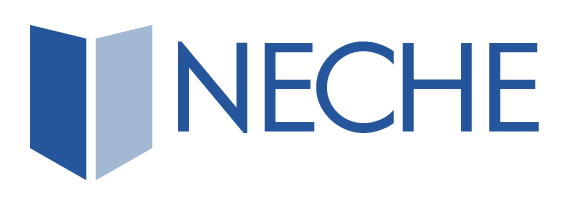Post University Reaffirmation 2024

Post University will undergo a comprehensive evaluation visit March 24, 2024 – March 27, 2024, by a team representing the New England Commission of Higher Education (formerly the Commission on Institutions of Higher Education of the New England Association of Schools and Colleges, NEASC).
The New England Commission of Higher Education is one of seven accrediting commissions in the United States that provide institutional accreditation on a regional basis. Accreditation is voluntary and applies to the institution as a whole. The Commission, which is recognized by the U.S. Department of Education, accredits approximately 220 institutions in the six-state New England region as well as several American-style institutions overseas.
Post University has been accredited by the Commission since 1972 and was last reviewed in 2014. Its accreditation by the Commission encompasses the entire institution.
For the past year and a half, Post University has been engaged in a process of self-study, addressing the Commission’s Standards for Accreditation. An evaluation team will visit the institution to gather evidence that the self-study is thorough and accurate. The team will recommend to the Commission a continuing status for the institution. Following a review process, the Commission itself will take the final action.
The public is invited to submit comments regarding the institution to:
Public Comment on Post University
New England Commission of Higher Education
3 Burlington Woods Drive, Suite 100
Burlington, MA 01803-4514
E-mail: [email protected]
Public Comments must address substantive matters related to the quality of the institution. The Commission cannot settle disputes between individuals and institutions, whether those involve faculty, students, administrators, or members of other groups. Comments will not be treated as confidential and must include the name, address, and telephone number of the person providing the comments.
Public Comments must be received by March 27, 2024. The Commission cannot guarantee that comments received after that date will be considered.
To prepare for its March 2024 review, a re-affirmation team with members who represent the various operational areas within Post University is in place to guide the process. All team members are responsible for supporting and coordinating the University’s efforts in achieving and maintaining compliance with the NECHE Standards of Accreditation. The reaffirmation team consists of nine individual committees, each responsible for one of the nine NECHE Standards of Accreditation.
Post University is pleased and honored to announce the team leaders and committee members of the 2024 reaffirmation team. These members represent all the operational areas within Post University and bring with them a wealth of knowledge and experience.
Committees and Members
Standard One – Mission and Purposes
The institution’s mission and purposes are appropriate to higher education, consistent with its charter or other operating authority, and implemented in a manner that complies with the Standards of the New England Commission of Higher Education. The institution’s mission gives direction to its activities and provides a basis for the assessment and enhancement of the institution’s effectiveness.
Chair: *Tom Bryant, Vice President of Accreditation
Committee Members:
- Shawn Fields, Associate Director of Accreditation
- Joe Lodewyck, Director of Assessment
- Melissah Kochera, Executive Assistant to the CEO
- Joan Huwiler, Director of University Communications
Standard Two – Planning and Evaluation
The institution undertakes planning and evaluation to accomplish and improve the achievement of its mission and purposes. It identifies its planning and evaluation priorities and pursues them effectively. The institution demonstrates its success in strategic, academic, financial, and other resource planning and the evaluation of its educational effectiveness.
Chair: Jennifer Zaniewski, Vice President Enrollment
Committee Members:
- *Jennifer Nicknair, Sr. Director, Institutional Effectiveness & Strategic Operations
- Jennifer Peffers, Director of Admissions ADP
- Kristi Burrell, Director of Strategy and Analysis
- Frank Monteiro, Chief Financial Officer / Co-Chief of Staff
Standard Three – Organization and Governance
The institution has a system of governance that facilitates the accomplishment of its mission and purposes and supports institutional effectiveness and integrity. Through its organizational design and governance structure, the institution creates and sustains an environment that encourages teaching, learning, service, scholarship, and where appropriate, research and creative activity. It demonstrates administrative capacity by assuring provision of support adequate for the appropriate functioning of each organizational component. The institution has sufficient autonomy and control of its programs and operations consistent with its mission to be held directly accountable for meeting the Commission’s Standards for Accreditation.
Chair: *Shawn Fields, Associate Director of Accreditation
Committee Members:
- Tom Bryant, Vice President of Accreditation
- Melissah Kochera, Executive Assistant to the CEO
- Wesley Debnam, Sr. Vice President of Culture, Diversity, & Associate Experience
- Kristin McDonald, Associate Program Chair of Human Services and Sociology
- Abigail Nemec, Program Chair – Equine Studies
- Sarah Meeks, Chair – Bachelor of Science Nursing Program
- Kristine Skalsky, Chair, Research and Scholarship
- Hamid Malakpour, Program Chair – Finance
- Michelle Hubbell, Director Military & Graduate Admissions
Standard Four – The Academic Program
The institution’s academic programs are consistent with and serve to fulfill its mission and purposes. The institution works systematically and effectively to plan, provide, oversee, evaluate, improve, and assure the academic quality and integrity of its academic programs and the credits and degrees awarded. The institution sets a standard of student achievement appropriate to the degree or certificate awarded and develops the systematic means to understand how and what students are learning and to use the evidence obtained to improve the academic program.
Co-Chairs: *Lucia Dressel, Assistant Dean for General Education and Stephanie Payzant, Director of Instructional Design
Committee Members:
- Caitlyn Masiewicz, Senior Solution Innovator Project Management and Business Services
- Melissa Kendall, Senior Associate Registrar
- Alisa Hunt, Interim Dean, The Malcolm Baldrige School of Business
- Brenda Helmer, Chair, Master of Science Nursing American Sentinel College of Nursing and Health Sciences
- Dawn Sherman, Dean of Students- Main Campus & International Student Ambassador
- Andrew Smith, Assistant Dean, John P. Burke School of Public Service & Education
- Dr. Yolanda Smith, Assistant Dean American Sentinel College
- Marisa Mucherino, Assistant Director of Instructional Design
- Gina Wellman, Director of Academic First Year Experience
Standard Five – Students
Consistent with its mission, the institution sets and achieves realistic goals to enroll students who are broadly representative of the population the institution wishes to serve. The institution addresses its own goals for the achievement of diversity, equity, and inclusion among its students and provides a safe environment that fosters the intellectual and personal development of its students. It endeavors to ensure the success of its students, offering the resources and services that provide them the opportunity to achieve the goals of their educational program as specified in institutional publications. The institution’s interactions with students and prospective students are characterized by integrity and equity.
Chair: Devon Putnam, Director of Student Engagement
Committee Members:
- Scott Allen, Senior Vice President
- Jennifer Labate, Director of Title IX and Disability Services
- Jewel Williams, Vice President of Regulatory Compliance and Financial Aid
- *Gregory Dennis, Director of Center for Academic Success
- Jennifer Zaniewski, Vice President Enrollment
- Stephanie Caban, Program Chair – Management and Baldrige Diversity Officer
- Dan Guerrera, Campus Life Director
- Tom Kavanagh, Director of Enrollment – Financial Aid and Technology
Standard Six – Teaching, Learning, and Scholarship
The institution supports teaching and learning through a well-qualified faculty and academic staff, who, instructors and processes appropriate to the institution, collectively ensure the quality of instruction and support for student learning. Scholarship, research, and creative activities receive support appropriate to the institution’s mission. The institution’s faculty has primary responsibility for advancing the institution’s academic purposes through teaching, learning, and scholarship.
Chair: *Michael Wolter, Assistant Dean of Undergraduate Programs
Committee Members:
- Elisa Murphy, Director of Associate Experience Services
- James Loughran, Program Chair of Graduate Business Studies
- Jeffrey Bodimer, Associate Director of Accreditation
- Kristine Skalsky, Chair of Research and Scholarship
- David Renza, Associate Director Academic Success and Retention
Standard Seven – Institutional Resources
The institution has sufficient human, financial, information, physical, and technological resources, and capacity to support its mission. Through periodic evaluation, the institution demonstrates that its resources are sufficient to sustain the quality of its educational program and to support institutional improvement now and in the foreseeable future. The institution demonstrates, through verifiable internal and external evidence, its financial capacity to graduate its entering class. The institution administers its resources in an ethical manner and assures effective systems of enterprise risk management, regulatory compliance, internal controls, and contingency management.
Chair: Chief Financial Officer / Co-Chief of Staff
Committee Members:
- *Carey Cseszko, Controller
- Jay Kim, Vice President Financial Services/Bursar
- Donna Prudhomme, Chief Financial Officer, American Sentinel College
- Tracy Ralston, Library Director
- Adam Gorski, Chief Information Officer
- Dennis Zancan, Facilities Manager
- Robert Acosta, Cybersecurity Analyst
- Frank Kuster, Associate Experience Generalist
Standard Eight – Educational Effectiveness
The institution demonstrates its effectiveness by ensuring satisfactory levels of student achievement on mission-appropriate student outcomes. Based on verifiable information, the institution understands what its students have gained as a result of their education and has useful evidence about the success of its recent graduates. This information is used for planning and improvement, resource allocation, and to inform the public about the institution. Student achievement is at a level appropriate for the degree awarded.
Chair: *Jennifer Pisco, Senior Director of Student Engagement
Committee Members:
- Devon Putnam, Director of Student Engagement
- Joe Lodewyck, Director of Assessment
- Gina Wellman, Director of Academic First Year Experience
- Brenda Helmer, Chair, MSN Program
- Roger Caramanica, Program Chair, Gaming and Esports Management
- Darren Cesca, Default Management Leader
- Shelley Cote, Director of Student Accounts
Standard Nine – Integrity, Transparency, and Public Disclosure
The institution subscribes to and advocates high ethical standards in the management of its affairs and in its dealings with students, prospective students, faculty, staff, its governing board, external agencies and organizations, and the general public. Through its policies and practices, the institution endeavors to exemplify the values it articulates in its mission and related statements. In presenting the institution to students, prospective students, and other members of the public, the institutional website provides information, including information about student success, that is complete, accurate, timely, readily accessible, clear, and sufficient for intended audiences to make informed decisions about the institution.
Chair: *Rich Schechter, Chief Marketing Officer
Committee Members:
- Jeffrey Bodimer, Associate Director of Accreditation
- Joan Huwiler, Director of University Communications
- Michele Bartlett, Director Website Development & Visual Branding
- JC Hopkins, Director of Marketing
- Sean Cooley, Director of Marketing Analysis & Lead Generation
- Wesley Debnam, SVP Culture, Diversity & Associate Experience
*Team Editor
Reaffirmation Committee Member Highlights
 Hayden Hindman
Hayden Hindman
Student Government President
What is your current position at Post University and how do you feel your involvement with the 2024 reaffirmation process will impact your approach?
As the 2023-2024 Student Government President, I am responsible for advocating for the student body, addressing their concerns, and working collaboratively with administrative personnel to ensure an outstanding experience. The 2024 reaffirmation process represents a significant opportunity for comprehensive evaluation and validation of Post University’s commitment to delivering quality education and learning experiences. Not only does it preserve the academic standing and reputation of the University, but it also directly impacts the well-being and confidence of our student body by ensuring continued access to quality education and resources.
How important was accreditation to you when making your decision to attend Post?
During my decision-making process, accreditation served as a stamp of approval and functioned as a vital assurance of quality. I am a believer that quality is never an accident. When I stepped onto campus for the first time, I immediately observed the meticulous nature of all aspects of the University, which further solidified my choice to attend Post University.
How could you inspire other students to understand the importance of accreditation?
Inspiring other students to appreciate the significance of accreditation starts by showcasing matters that directly impact them. An example of this would be emphasizing that degrees from accredited institutions are more widely recognized by employers, potentially unlocking greater career opportunities. Another example would be discussing institutional accountability and the assurance from the accreditation process involving meeting certain standards, receiving appropriate support, and ensuring educational quality. Adhering to NECHE Standards is not just a commitment to quality; it is a promise to the student body, ensuring a university experience that meets and exceeds expectations.
 Richard Schechter
Richard Schechter
Chief Marketing Officer
As a member of the reaffirmation team, what do you hope to gain from the experience?
As the Chief Marketing Officer of Post University and the Team Chair for NECHE Standard Nine, I have benefitted from the data collection process and our deep reflection on Post’s focus on integrity and transparency. Post’s “digital first” strategy, adopted several years ago, ensures that all the University’s communication channels are easily updated with the latest available information, enabling full transparency and disclosure for all constituent groups. Our commitment to the Standard Nine principles has made me keenly aware of the importance of ensuring we get the right information to the right people at the right time. I will also add that I am extremely proud of the work that the Marketing & Communications Department, Associate Experience, Admissions Department, and many other teams engage in daily to “LIVE” by the NECHE Standard Nine values. It is a driving force behind how Post Makes It Personal®.
How do you think complying with NECHE Standards of Accreditation supports the University’s mission?
Our mission is the underlying promise we make to our students. When you think about it, behind that promise are the Standard Nine values of Integrity, Transparency, and Public Disclosure. To ensure the accuracy of information disseminated, the development, review, and assessment of all University audience communication initiatives go through a multi-review process. This process starts with the Marketing & Communications Department with final review and approval by our regulatory and compliance associates.
What is your current position at Post University and how do you feel your involvement with the 2024 reaffirmation process will impact your approach?
As the Chief Marketing Officer, I know that our fully integrated, multi-channel, traditional, and digital media marketing communications platform is driven by the University’s mission and catalog. The University adheres to federal and state laws, abides by the Freedom of Information Act in responding to requests for information, places high regard for privacy concerns through our Privacy Policy, participates in the National Do Not Call Registry, and maintains Telephone Consumer Protection Act (TCPA) compliance in prospect information collection. Associates participate in ongoing professional ethics training, and a required Professional College Advisory Session is conducted with each new student inquiring about the University’s programs. The reaffirmation process highlights the importance of these guidelines and processes.
How can you inspire other associates who may not be directly involved in the process to realize the importance of compliance on the quality of education and services delivered to students?
Compliance is a fundamental part of Post University’s culture and behavioral expectations. Only the highest ethical standards serve as the starting point from which all University constituents are engaged in communications, from its prospective students, current students, associates, faculty, business community partners, workforce advisory boards, the governing Board of Trustees, and operating communities relating to the public. The goal is to give all participants, students, faculty, associates, and strategic business partners the information, credibility, and confidence to make informed choices about their interactions with Post University truthfully and transparently. The reaffirmation process allows us to reflect on what we do well and what we can do even better and even allows us to show other industry professionals just how important compliance and quality are to us.
 Dawn C. Sherman, Ed.D.
Dawn C. Sherman, Ed.D.
Dean of Students, Main Campus & International Student Ambassador
As Dean of Students, Dawn ensures a positive, quality student experience for all students on the Main Campus. She leads the Campus Life and the Center for Career and Professional Development teams while coordinating the University’s workforce-ready initiative and collaborating with international student recruitment efforts. Dawn brings to her role more than 30 years of experience in higher education including residence life, campus activities, career services, international students, academic administration, and teaching at both the undergraduate and graduate levels. She holds an Ed.D. in Educational Leadership and an M.S. in Counseling/Student Development.
As a member of the reaffirmation team, what do you hope to gain from the experience?
I am grateful for being part of the reaffirmation process, which allows us to reflect on our goals and accomplishments. The process allows us to recognize the amazing programs and services at Post University that support student success, inspire our Associates, and continue the University’s legacy creatively, and innovatively. In our daily routines, we often overlook the exceptional work at Post University, but reaffirmation enables us to acknowledge it. I am gaining a new perspective on a broad range of inventive programming, and I am impressed by the accomplishments of my colleagues across the university. Moreover, I enjoy collaborating with colleagues I would not normally interact with.
How do you think complying with NECHE Standards of Accreditation supports the University’s mission?
Within the scope of our mission, the NECHE Standards of Accreditation provide guidelines for our leadership and goal achievement in higher education and outline standards for quality and consistent outcomes. By complying with these Standards, we are committed to excellence in higher education and living our mission of personalized guidance, unwavering motivation, robust support, and student-centered education. Our Mission Statement drives us—the Standards light our path forward while our Mission Statement leads the way.
What is your current position at Post University and how do you feel your involvement with the 2024 reaffirmation process will impact your approach?
My role as a Dean in Academics is shifting to a Dean in Student Services position, and the opportunity to participate in the affirmation process is even more valuable. This process allows me to gain a broader knowledge of the quality programs and services provided across the university to support our students and has also been an opportunity to meet new people with whom I can collaborate as I transition responsibilities. My participation is a chance to grow professionally and thus take the process seriously and do my best to deliver my part. The reaffirmation process will help guide our work toward excellence in student services, supporting students in their academic and co-curricular activities so they may grow and develop into workforce-ready alumni.
How can you inspire other associates who may not be directly involved in the process to realize the importance of compliance on the quality of education and services delivered to students?
Reaffirmation is a commitment to our compliance standards which hold us accountable and consistent in the delivery of our programs and services. This means all current and future students can expect the same high-quality education and services Post is known for, ensuring all students have the same, or an improved, experience.
Finally, the NECHE reaffirmation process involves work but is rewarding. To acknowledge and document all the quality programs and services and the creative solutions at Post is an honor. If offered the opportunity to participate in the reaffirmation process, I hope that all Associates can look beyond the time it takes and see the personal and professional value of participating—the experience outweighs the work!
 Robert L. Acosta, MS
Robert L. Acosta, MS
CyberSecurity Analyst
Information Technology
As a member of the reaffirmation team, what do you hope to gain from the experience?
As a member of the reaffirmation team for Standard Seven, my goal is to drive continuous improvement and develop a deeper understanding of how seemingly unrelated departments come together to support Post University’s mission. Throughout the year, collaborating with a team of talented individuals, I discovered that the reaffirmation process, through the self-assessment perspective, shows areas in which we can enhance existing processes and procedures that improve our student experience.
How do you think complying with NECHE Standards of Accreditation supports the University’s mission?
Having standards, policies, and procedures are indispensable for any organization’s success and continuous improvement. They serve as a framework that can keep an organization aligned with its mission. NECHE Standards of Accreditation provide the structure for remaining committed to delivering our mission by providing personalized guidance, unwavering motivation, robust support, and student-centered education that allows our students to achieve their goals.
What is your current position at Post University and how do you feel your involvement with the 2024 reaffirmation process will impact your approach?
The 2024 reaffirmation process requires me to change my perspective and think of everyone’s involvement, mine included, in relation to how our decisions impact students. While I have limited involvement with students, the reaffirmation process prompts me to consider the impact of policies and procedures that we implement and strike a balance between securing the organization and exploring how these measures affect students.
How can you inspire other associates who may not be directly involved in the process to realize the importance of compliance on the quality of education and services delivered to students?
As with any critical topic, the best way to inspire other staff members is to highlight its importance and make compliance a focal conversation about the impact it has on our students. By creating a culture that values compliance and open dialog, we can communicate the purpose of reaffirmation while linking it to Post University’s mission. Emphasizing the meaningfulness of compliance will allow associates to understand their responsibility in delivering an exceptional experience to our students.
 Yolanda Smith, EdD, MSN, RN
Yolanda Smith, EdD, MSN, RN
Assistant Dean
American Sentinel College of Nursing & Health Sciences
As a member of the reaffirmation team, what do you hope to gain from the experience?
I hope to gain a broad knowledge of how we reflect our mission across all areas of the University. The reaffirmation process is the ideal opportunity for me to be involved in highlighting the quality programs we offer and how we prepare students to achieve their personal and professional goals.
How do you think complying with NECHE Standards of Accreditation supports the University’s mission?
Living the mission is the foundation of all we do. The NECHE Standards of Accreditation provide a roadmap that guides our story of how, when, and why we perform our daily duties of providing meaningful educational experiences for our students. Working to ensure compliance with the NECHE Standards of Accreditation exemplifies our commitment to fulfilling the mission.
What is your current position at Post University and how do you feel your involvement with the 2024 reaffirmation process will impact your approach?
I am the Assistant Dean of American Sentinel College of Nursing & Health Sciences. It is critical for me to be wholeheartedly involved in the 2024 reaffirmation process because this is an important aspect of highlighting that the level of education we offer meets the highest standards. Therefore, I approach the process with a focused ambition of supporting the team with completing the requirements so we can be ready for a successful review by the NECHE site evaluation team.
How can you inspire other associates who may not be directly involved in the process to realize the importance of compliance on the quality of education and services delivered to students?
My hope is that my passion for the accreditation process as well as how I promote the importance of meeting the NECHE Standards of Accreditation will be so contagious that other associates will want to become involved. Having a stamp of approval for the quality of our programs is the epitome of excellence, and I will continue to emphasize the positive impact of that approval on our students, associates, and the University.
 Lucia Dressel
Lucia Dressel
Lucia Dressel is the Assistant Dean of General Education at Post University. Lucia is a member of the Standard Four committee that focuses on Post’s academic programs and their fulfillment of the university’s mission and purpose. Lucia and the General Education Learning Outcome (GELO) committee are responsible for spearheading an innovative Gen Ed reform in Post’s General Education program. Lucia and Provost Johnson will be presenting the Gen Ed reform in December at NECHE’s national conference in Boston, Mass.
As a member of the reaffirmation team, what do you hope to gain from the experience?
My biggest hope for this process is to support Post in creating exceptional academic experiences for our students. Being a member of this team affords each member with an overall view of the student experience and how academics can create and foster immediately applicable academic resources and experiences.
How do you think complying with NECHE Standards of Accreditation supports the University’s mission?
Post’s mission promises personalized guidance, motivation, support, and student-centered education. Additionally, Post focuses its mission on the practical and professional skills inherent in socially responsible, workforce-ready leaders. This can only come to fruition through a constant assessment of how Post’s academic services and student services define, assess, and achieve these purposes. The accreditation process through NECHE shows that Post is committed to delivering its mission to Post stakeholders and to its self-regulatory processes.
What is your current position at Post University and how do you feel your involvement with the 2024 reaffirmation process will impact your approach?
My current position at Post is as the Assistant Dean of General Education. This position and the current Gen Ed reform have shaped my vision of Post’s mission and its obligation to the student experience. I am fundamentally involved in the student experience and in creating academic opportunities that focus on human skills and career skills throughout the entire program. The reaffirmation process will assist in assessing and revising the opportunities for students to advance their educations, careers, and communities, which is the inherent mission of the General Education program at Post.
How can you inspire other associates who may not be directly involved in the process to realize the importance of compliance on the quality of education and services delivered to students?
Compliance is about ensuring that Post is delivering the quality educational experience promised in our mission statement and in our ethical and legal obligations to our stakeholders, particularly students who are investing time, money, resources, and love in their educational journeys. From the moment a student speaks to a Post representative, all associates need to be involved in striving for the quality and relatability of what we offer.
 Gregory Dennis
Gregory Dennis
We are proud to honor Gregory Dennis, Director, Student Engagement and Writing Center, as the second reaffirmation team member highlighted. Gregory is a member of the Standard Five – Students committee. As you read his responses to several questions, you will quickly see that his daily interactions with our students and job responsibilities make him uniquely qualified to serve on this committee.
As a member of the reaffirmation team, what do you hope to gain from the experience?
Being relatively new to Post University, this is an excellent way to become more familiar with the intricacies of how the institution operates. It is one thing to get to know our school casually and on an “as needed” basis (e.g., who/where to go for a specific issue; learning about a new initiative in a meeting; etc.). But going through the reaffirmation process is like reading the owner’s manual. It is also an excellent way to connect with other associates and departments across the university whom I would otherwise would never have a chance to meet.
How do you think complying with NECHE Standards of Accreditation supports the University’s mission?
Mission Statement
At Post University, we believe that personalized guidance, unwavering motivation, robust support, and a student-centered education are the catalysts that allow students to achieve their individual academic and career goals. We shape workforce ready, socially responsible leaders through learning experiences offered in and out of the classroom designed to promote the exchange of knowledge, expand thinking, and refine practical and professional skills.
There are many connections to be made here, but I will keep the focus limited to Standard 5: Students (the standard the team I am on has been assigned to). In this standard, NECHE wants to see evidence that we are consistent with our mission, specifically that we provide support and service to our students in order for them to be successful.
In doing this, the phrase “robust support, and a student-centered education” stands out. Post University has created an academic support system for its students, which complies with both what NECHE is looking for as well as what we explicitly set out to do in our mission. From our dynamic advising teams, to our dedicated faculty, to services such as First Year Experience, the Center for Career & Professional Development, and the Center for Academic Success, it makes our job easy to prove we have the infrastructure to help our students succeed.
How do you think complying with NECHE Standards of Accreditation supports the University’s mission?
I am the Director of the Center for Academic Success. Our department is reexamining our services and re-evaluating how we can best support all students at Post University. So being a part of the reaffirmation process was a rather fortunate coincidence, as this is a time for the entire university to look back upon the goals and strategies it set for itself and evaluate how well it stayed on course. As our department is trying to figure out how we can best serve our students, it is a great reminder to look beyond our department walls and realize we are an active part of a larger machine. In other words, it is not just how our department directly helps the student, but instead how our department assists the entire university in its student-focused goals.
How can you inspire other associates who may not be directly involved in the process to realize the importance of compliance on the quality of education and services delivered to students?
This may not be an “inspirational” response, but I will say accreditation is easily the single most important thing for any higher education institution. This is where we prove that what we do is helping our students be successful (or, at the very least, we are offering them the resources and services needed for them to succeed). In other words, this is where the rubber meets the road, this is the proof in the pudding, this is… well, you get the idea. Without accreditation, there are no programs. Without programs… again, you get the idea. So while many may perceive the term “accreditation” as something boring, this is our opportunity to not just prove we do what we claim, it is a chance to show off what we do well. More importantly, it is a time for us to examine where we can do even better.
 Tom Kavanagh
Tom Kavanagh
We are proud to honor Tom Kavanagh, Director of Enrollment – Financial Aid & Technology, as the third reaffirmation team member highlighted. Tom is a member of the Standard Five – Students committee. As you read his responses to several questions, you will quickly see that his daily interactions with our students and job responsibilities make him uniquely qualified to serve on this committee.
As a member of the reaffirmation team, what do you hope to gain from the experience?
When asked to join the reaffirmation team, my hope was simply to learn what goes into creating a self-study, but since starting the work, I have learned how this exercise forces you to step back and examine your processes and helps identify areas where improvement is needed. Sometimes, we fail to see these opportunities when we are in weeds of our day-to-day responsibilities.
How do you think complying with NECHE Standards of Accreditation supports the University’s mission?
Complying with the NECHE Standards of Accreditation supports our mission by providing us a baseline upon which to grow, as well as the framework to thoroughly examine how well we are meeting our commitments to our students. It forces us to question the efficacy of our processes and challenges us to dream bigger and provide a higher standard of support for our students.
What is your current position at Post University and how do you feel your involvement with the 2024 reaffirmation process will impact your approach?
I am currently the Director of Enrollment – Financial Aid & Technology. As stated earlier, this is an exercise of self-assessment. Identifying what my department is currently doing well and where we need to improve will shape the future of how we support our students. I feel that my involvement in the reaffirmation process will teach me to challenge the status quo on an ongoing basis and seek ways to improve our processes well beyond the conclusion of this self-study.
How can you inspire other associates who may not be directly involved in the process to realize the importance of compliance on the quality of education and services delivered to students?
The best way to inspire other associates who are not directly involved in the self-study, is to tell them about it! We can explain what we are currently working on and why it is so important to the continued success of Post and our students. Additionally, it is so important to underscore that the substance of the self-study, the evidence we provide to demonstrate how we meet and exceed all compliance requirements, comes from the work that THEY do day in and day out for our students! Whether you are helping to write the self-study or not, you are directly impacting the story we tell.
Reaffirmation is a Total University Effort. For additional information on the reaffirmation process and how you can become involved, please contact Tom Bryant at [email protected].